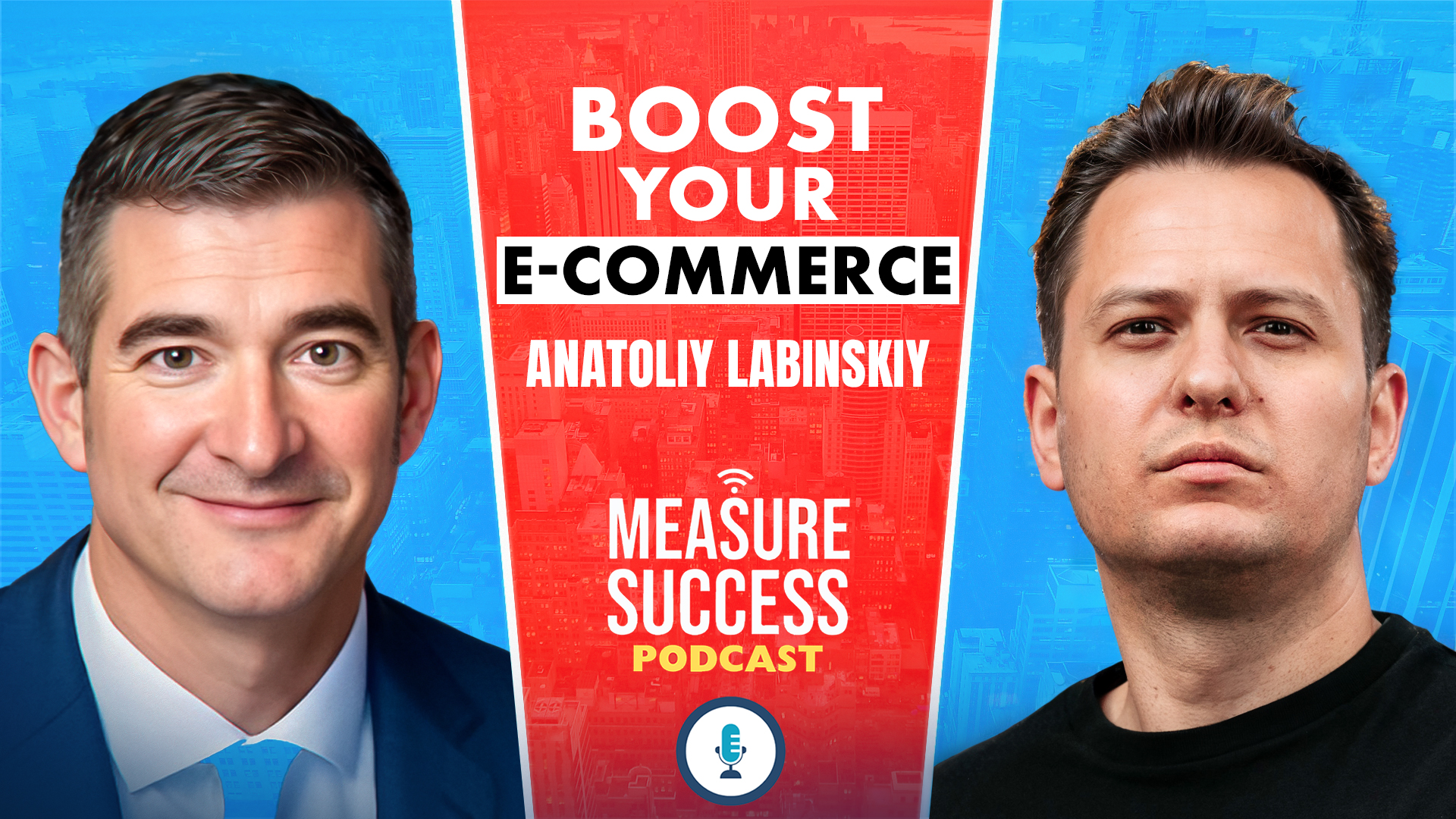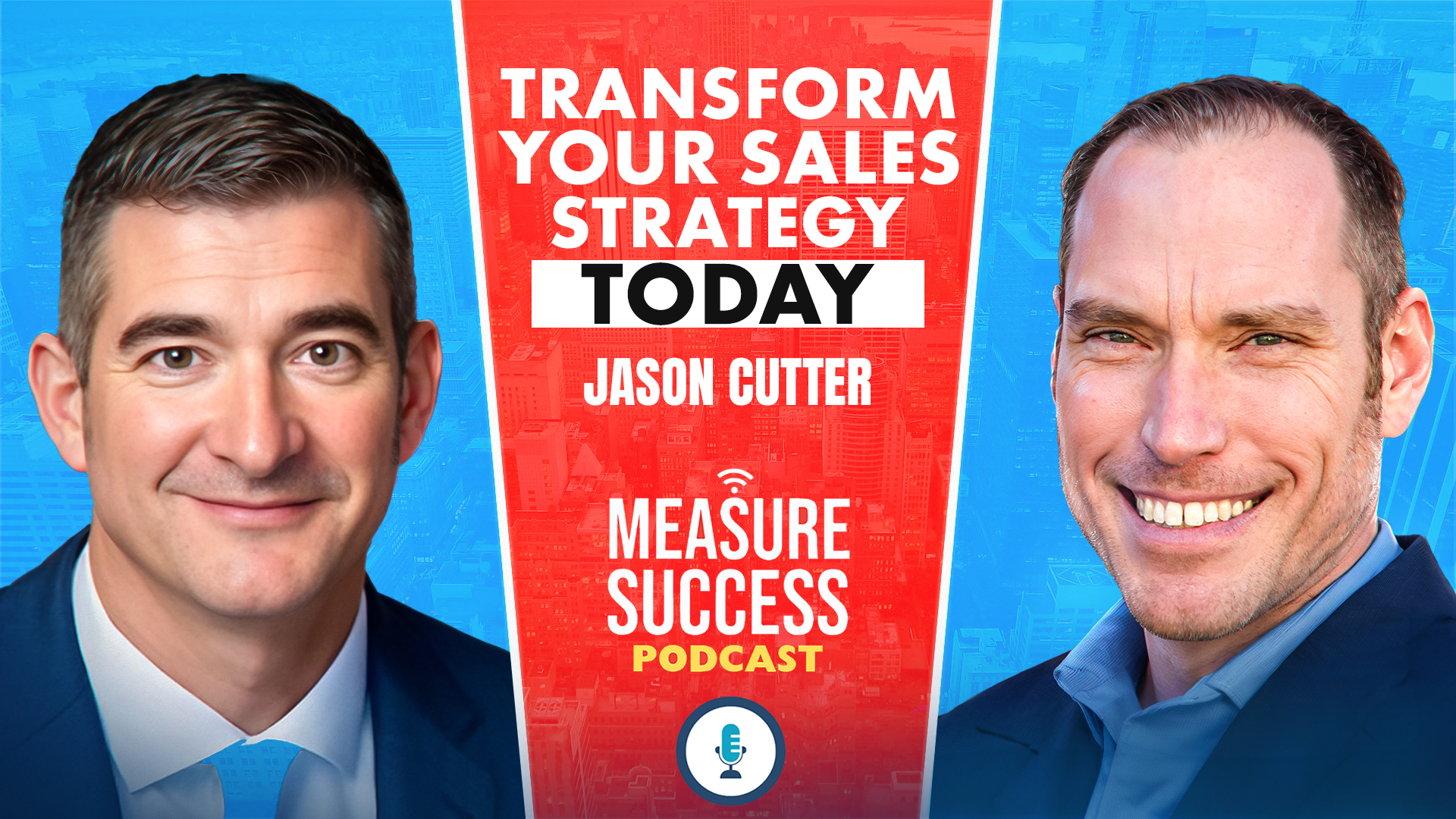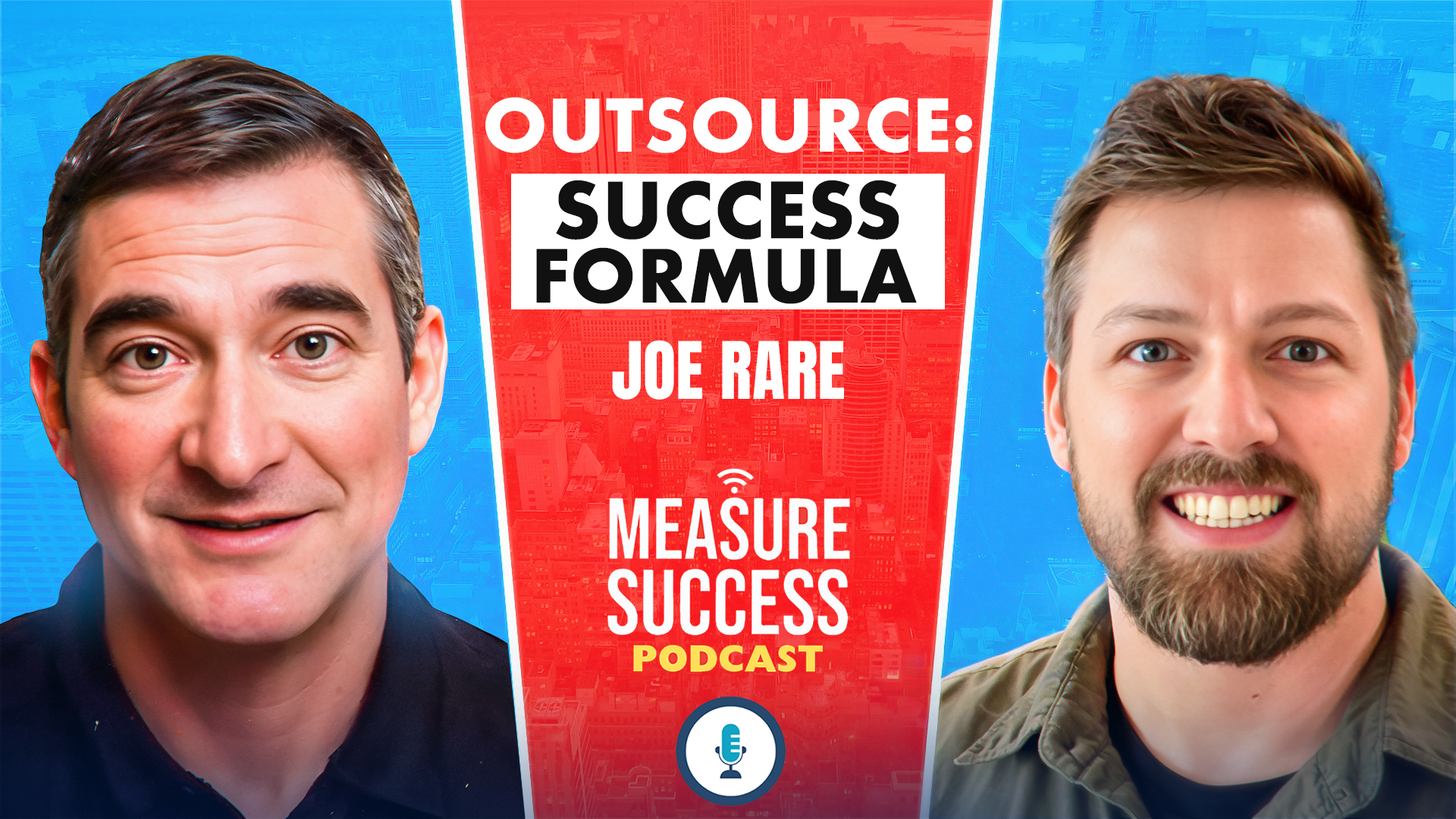
Arjun is the author of Customer Karma: Why Stop at a One-Night Stand, When You Can Have a Lifetime Relationship with Your Customers? and host of the podcast Secrets to Win Big®. His most recent book, Feeling Business, should be out later this year. He has been called “One of the most ‘marketing-intelligent’ minds in the business today” and “the ‘go-to guy’ who makes things happen in the business world.”
Here’s a glimpse of what you’ll learn:
- Arjun Sen talks about ZenMango and describes some of the marketing strategies he deployed when he was working at Papa John’s
- The net promoter score versus focusing on the individual
- What are some of the crucial questions that Arjun asks when he’s consulting with companies?
- Why you should be a customer in your own business
- Arjun shares the reason he quit his successful corporate job for ZenMango
- The financial advice from Arjun’s grandma that changed his life
- Arjun recommends some of his favorite books
In this episode…
People tend to separate life into two categories: the personal and the professional. Then, they approach the two in very separate ways. But using different tactics for both isn’t the only solution — and it might not get the best results.
According to Arjun Sen of ZenMango, you can apply some of the same strategies for success to all areas of your life. For instance, he proposes that using KPIs in your personal life can bring you a higher level of self-satisfaction. He also suggests placing feelings at the center of your business strategy. Why? Because the best way to gain insight into your customer’s pain points is to experience them for yourself. Arjun says that if you want to understand what your customers need, it isn’t about having an intellectual discussion — it’s about understanding how they feel.
In this episode of the Measure Success Podcast, Carl J. Cox talks with Arjun Sen, CEO and President of ZenMango, about (emotional) strategy in business. Arjun discusses some of the successful tactics he’s deployed in the past, how he finds the right place to start when consulting with a new company, and why feelings should be a part of your business plan. Plus, Arjun shares his grandmother’s clever financial advice for saving money and describes the value of using KPIs in your personal life.
Resources Mentioned in this episode
- Arjun Sen on LinkedIn
- Arjun Sen’s website
- ZenMango
- Secrets to Win Big® with Arjun Sen
- Customer Karma: Why Stop at a One-Night Stand, When You Can Have a Lifetime Relationship with Your Customers? by Arjun Sen
- Good to Great: Why Some Companies Make the Leap and Others Don’t by Jim Collins
- The 22 Immutable Laws of Marketing: Violate Them at Your Own Risk! by Al Ries and Jack Trout
- The Tipping Point: How Little Things Can Make a Big Difference by Malcolm Gladwell
- 40 Strategy
- Contact 40 Strategy
- Carl J. Cox on LinkedIn
Sponsor for this episode…
This episode is sponsored by 40 Strategy.
40 Strategy provides strategic planning and consulting to help organizations realize and achieve their dreams by creating and measuring KPIs for success.
Unfortunately, most organizations only spend 2% of their time—or about 40 hours per year—on building an effective strategy.
Increasing the success of those 40 hours is what 40 Strategy does because your success is their passion—and that’s why organizations look to them for guidance.
Not only does 40 Strategy help you craft and implement an effective strategy, but they’ll also work to facilitate teams with proven practices and help with your scenario planning.
Harvard research shows that you can triple your success when you use the right Key Performance Indicators. Who doesn’t want that?
If you have questions, you can reach out through their website or email them at catch@40strategy.com.
Episode Transcript
Intro 0:03
Welcome to the Measure Success Podcast where we feature top leaders on how they measure success in their business and life. Now, let’s learn from their experiences.
Carl J. Cox 0:18
Carl J. Cox here and I’m the host of the Measure Success Podcast where I talk with top leaders about effective strategies that inspire success. This episode is actually brought to you by 40 Strategy and a 40 Strategy. We provide strategic consulting to help organizations organizations realize and achieve their dreams. Arjun basically what we do is we help companies and organizations create strategic plans and measure the right KPIs for success. Unfortunately, we found that most organizations only spent about 2% of their time, or about 40 collective executive hours on actually trying to figure out and build their effective strategy. And I don’t know about you Arjun I think that’s pretty crazy when you agree. Absolutely. Said 40 Strategy, your success is our passion. That’s why organizations caused us to help. We not only come up with strategy and proven practices, but we take evidence that Harvard Business Review is already figured out. When you focus on the right key performance indicators, you can actually triple your success and who wouldn’t want that. So with that, we encourage you to reach out at 40strategy.com or you can email catch, like catch a ball catch@40strategy.com. And with that, I’d like to have a shout out to a mutual friend of both of ours, who is Bekah Komar, Bekah Komar. As the host of the follow, follow your heart podcast, and she’s also a wellness coach. And through some discussions, Bekah and I work together back at Cascade Strategy open the US office for them. She was a great partner and we’re really huge contributor to our team. But I love what she’s done next and following literally following her dreams and passions and through some discussions on helping her some guidance on hub growing her business. She recommended I speak to who is in front of you today, which is Arjun Sen. Arjun, so, so great to have you on the show
Arjun Sen 2:10
today. truly a pleasure and also my mutual admiration also with Bekah, an amazing human being and an incredible strategic mind who is ready to change the world.
Carl J. Cox 2:21
It is amazing. Thank you for adding that. So we’re going to talk about Arjun’s background. He’s the former Fortune 500 executive and a highly rated international keynote speaker in the brand and customer experience category. He has impacted significant brands ultimately to help them to win big at Papa John’s he led the 3000 restaurant chain to four years of record growth. He’s currently the CEO of ZenMango. He has made incredible impacts on major restaurant service retail, nonprofit and sports brands on a global basis. Arjun is an acclaimed author of the book Customer Karma, and you must read for anybody who is in the customer service business. his upcoming book Feeling Business is set to be released later this year in 2021. Blaine Hurst, President CEO of Panera Bread, called him one of the most marketing intelligent minds in the business today. Arjun has a degree in aeronautical engineering from the Indian Institute of Technology. And he also has earned his MBA at BYU and once again, welcome Arjun to the show. Thank you. It’s truly a pleasure and an honor to be here. So for those who aren’t familiar with ZenMango, why don’t you share a little bit more about who ZenMango is and what you do on a regular basis.
Arjun Sen 3:41
ZenMango was born with a very simple thought during my days as head of marketing and operations at Papa John’s I realized that it is very lonely on top I wish I had that whisper that ally who is who has been there and can be with me in this journey literally that partner in the corporate trenches. That’s what we do at ZenMango is bring all our experience from the corporate world and help brands impact in the world of branding to make big impacts big wins but also to achieve sustainable consistent results hmm I love that
Carl J. Cox 4:25
set you know that touches me directly right is is not only coming up with a great idea but getting it done and it’s getting sustainable results and that’s something you had practical experience with Tell me a little bit more about those Papa John’s days right. So you were a part of an incredible growth path that you had with them. And and when we had our pre when we talked several several times they can even a month ago or over. We talked about ahead of time of what you had done and make a difference. In this tell tell the audience of listeners a little bit deeper level of the time Are you in with Papa John’s, and how that made an incredible difference to get to where they are today?
Arjun Sen 5:07
You know to be it and for any journey I feel at the very beginning, instead of being impatient and start running into pause and get an understanding of where you are at Papa John’s, we felt that there were three things and opportunities. Number one, we had a tagline called better ingredients. Even myself as the head of marketing, I didn’t get it. We are not in the grocery business. The second that we realized was on a Friday, this The year is 1997 98, it took 45 minutes to wait for a pizza just to order a pizza. And the third was our brand awareness was low. So as we started going through having this holistic idea, what we realized was we needed to solve for all of them together over time. And this wasn’t a short term strategy, our goal was three to five years, Papa John’s will be the top three, and then talk to and that’s the part where as we started going through the pause was very important. And then as we move forward, what we realized was the tagline change, for better ingredients to better ingredients, better pizza, because ingredients need to deliver the PIZZA. So on a Friday night, when you bite into the pizza, it has to be different. On the 45 minutes, wait, what we realized was our competition, you know, with due respect to them, we’re trying to find an incredible 10% better by putting our one 800 number. But from our end, what we felt was a 10% better still men, a 41 minute wait, I drew this one diagram where the customer was this tiny and the order taker was huge, because to depict to our board that you cannot, whether it is pizza, or any business survive long term by making the customer feel not in control. And that gave us the birth to the first ever online ordering system. And the final thing was the most fun thing I’ve ever done was we started a comparative advertising going against the number one Pizza Hut. And that PR battle put us right away in the top. And the result fast forward. If you start looking at his Papa John’s online today is a billion dollars a year business by itself. The brand gained close to 140 5% over four years and never stop back or look back. So the whole thing was pause, see all the opportunities that put a plan. That way you not only are ahead but you stay ahead. And that was very fortunate to be part of an incredible team and incredible leadership to achieve that together.
Carl J. Cox 8:01
So it’s interesting, I was just talking to my son the other day about this exact same time periods. Like we didn’t have cell phones back then. Right? You know, I didn’t have a cell phone, I think I was just getting run around 99 2000, the very simple phones and then early 2000s of blackberry I started using personally on a personal basis. I know they’re out there beforehand. But times were really different back then. And and so to tell people, hey, we want to be able to have an online ordering system. That was a big, hairy audacious goal using Jim Collins, you know, Good to Great concept. So how did people respond to that? Did they really even think people were going to do that? Did they did they think they would even be comfortable going online to order something when they may have preferred the weight on a phone just out of trust?
Arjun Sen 8:49
So to me, I think the challenge I think is was even bigger. Our founder, didn’t even have a laptop, or a computer. So one of the biggest consultants of all times, send us a fax is those days, we used to have faxes, which told us that this online thing is a risky idea, which meant as it is we didn’t have that much of a budget, one of the zeros were gone right away. So the lot of battle was internal. So what we realized was a change like this, there are two parts to the change. One is you have to believe and have the conviction that that’s the right thing. And the second part is you don’t worry about those consumers or customers who are not ready to adopt. You serve every one of the customers who are ready to adopt one at a time. And I remember we started on Memphis, and we measured success based on no overall numbers. We looked at every customer one at a time because we wanted to know early indicators of anything that was going wrong, because with 100 orders, if we know what was wrong and fixed it, when it became millions of orders, we would be in a right position. So the whole thing was, internally accept the fact that not everybody in senior management will be aligned, to stay true to the conviction. And number three was measure success, one customer at a time. And that one customer at a time, I feel is a very important concept for all of us. However, Big B because we always collect money from one customer one client every time, which means being present, serving that customer, and having KPIs at an individual level is very important.
Carl J. Cox 10:46
So I love that concept that you talk about focusing on an individual basis, right? There’s, it’s, it’s, it’s easy to take a net promoter score, right? This is the most common concept we have here today. And boy, if they give us a nine or 10, we’re good. Right? And if they have a seven or an eight, we’re gonna attack it and figure out what happened wrong with that, if those who are familiar with the Net Promoter Score process. But you took I mean, this is still not a small company back then Papa John’s No. And you’re saying you’re actually going through and making sure that each person who’s going through the process of learning how to order online, you are tackling each of these perspective? How did that seems pretty overwhelming to me? How will you actually get all that data and just start making fixes where you can actually permeate that throughout the organization? Nope, this is what we’re gonna do later on.
Arjun Sen 11:40
So to me, I think what was important was, there was this one individual who I would never forget, his name is Gary Brosnan for Gary Brosnan taught us was he was head of customer service. He taught us that operationally, we won’t be perfect at the very beginning, which means he had a backup process. Every order when it was praised, placed Gary and his team’s job was to make sure that it was in the POS system of the restaurants, and they check everyone. And if for any reason, it didn’t work, they could put it in. So it was the backup that we had allowed us the time to get to the highest level of efficiency. Because otherwise, if customers felt that we were not delivering, because think, if I take you back and your family, you ordered a pizza, you only will know in 40 minutes or 30 minutes that your pizza didn’t make it to the system. And by that time, it’s too late. So Gary Brosnan and team helped us by putting this backup system. And that’s what we realized is give yourself time to build the process. But make sure during your building, that never becomes an excuse for customers, because that was one of the key mantras I learned during those those days was with customers, every customer time, there’s no excuses, just results when a customer chooses you. There’s no excuses, we have to must deliver the results they want and more.
[continue to next page]













